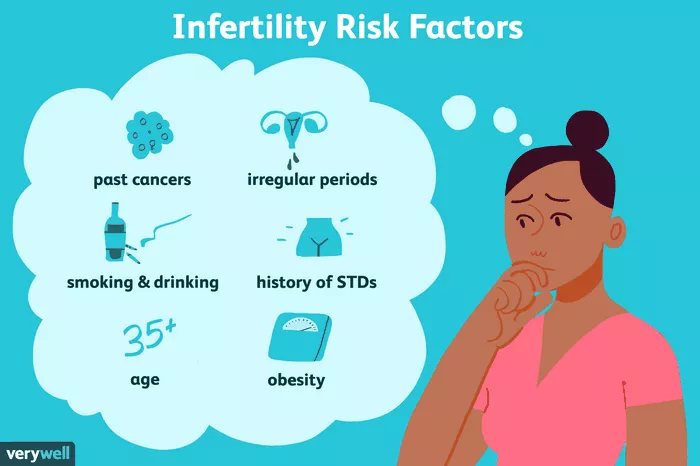Infertility can be a challenging road to navigate for couples dreaming of starting a family. While the focus often tends to be on female factors, it’s important to recognize that male infertility can be just as significant. Understanding the various factors that can lead to male infertility is crucial for those facing challenges in conceiving. In this article, we’ll delve into the diverse array of factors that can cause a man to become infertile, shedding light on this complex issue.
Hormonal Imbalances: Disrupting the Balance
Hormones play a pivotal role in the intricate dance of fertility, and any imbalance can throw off the entire routine. Conditions like hypogonadism, where the testes don’t produce enough testosterone, can disrupt sperm production and fertility. Similarly, abnormalities in other hormones like follicle-stimulating hormone (FSH) and luteinizing hormone (LH) can interfere with spermatogenesis, the process of sperm production.
Genetic Factors: Unraveling the Genetic Code
Genetic abnormalities can also play a significant role in male infertility. Conditions such as Klinefelter syndrome, where men are born with an extra X chromosome, or Y chromosome deletions, can affect sperm production and quality. These genetic variations may impact critical genes involved in spermatogenesis, leading to fertility issues.
Varicocele: The Veil of Veins
Varicocele, a condition characterized by enlarged veins within the scrotum, is a common cause of male infertility. It can disrupt blood flow and raise the temperature in the testes, which in turn impairs sperm production and quality. Imagine it like a traffic jam on a hot day, hindering the delivery of goods (sperm) to their destination (the female reproductive tract).
Reproductive Tract Obstructions: Roadblocks to Fertility
Obstructions within the male reproductive tract can hinder the passage of sperm, leading to infertility. Conditions such as epididymal or ejaculatory duct obstruction can prevent sperm from being properly transported. These obstructions may result from infections, injuries, or congenital abnormalities, acting like roadblocks on the highway of fertility.
Lifestyle and Environmental Influences: Navigating Modern Challenges
In today’s fast-paced world, lifestyle and environmental factors can significantly impact male fertility. Smoking, excessive alcohol consumption, drug use, and exposure to environmental toxins can all affect sperm production and function. Additionally, factors like obesity, stress, and poor dietary habits can contribute to hormonal imbalances and reproductive dysfunction, further complicating fertility issues.
Sexual Dysfunction: Addressing Intimate Challenges
Sexual dysfunction, including erectile dysfunction and ejaculatory disorders, can also contribute to male infertility. Difficulties in achieving or maintaining an erection, as well as issues with ejaculation, can hinder the delivery of sperm to the female reproductive tract, reducing the chances of conception.
Seeking Solutions: Navigating the Path to Parenthood
While male infertility can present significant challenges, it’s essential to remember that effective treatments are available. Depending on the underlying cause, treatment options may include hormone therapy, surgical interventions, lifestyle modifications, or assisted reproductive technologies such as in vitro fertilization (IVF) or intracytoplasmic sperm injection (ICSI). Seeking support from healthcare professionals and fertility specialists can provide valuable guidance and reassurance along the journey to parenthood.
Conclusion:
In conclusion, male infertility can arise from a variety of factors, including hormonal imbalances, genetic abnormalities, varicoceles, reproductive tract obstructions, lifestyle and environmental influences, and sexual dysfunction. Understanding these factors is crucial in navigating the complexities of male fertility and seeking appropriate interventions. By shedding light on the causes of male infertility, we can empower individuals and couples to take proactive steps towards achieving their dreams of parenthood.























